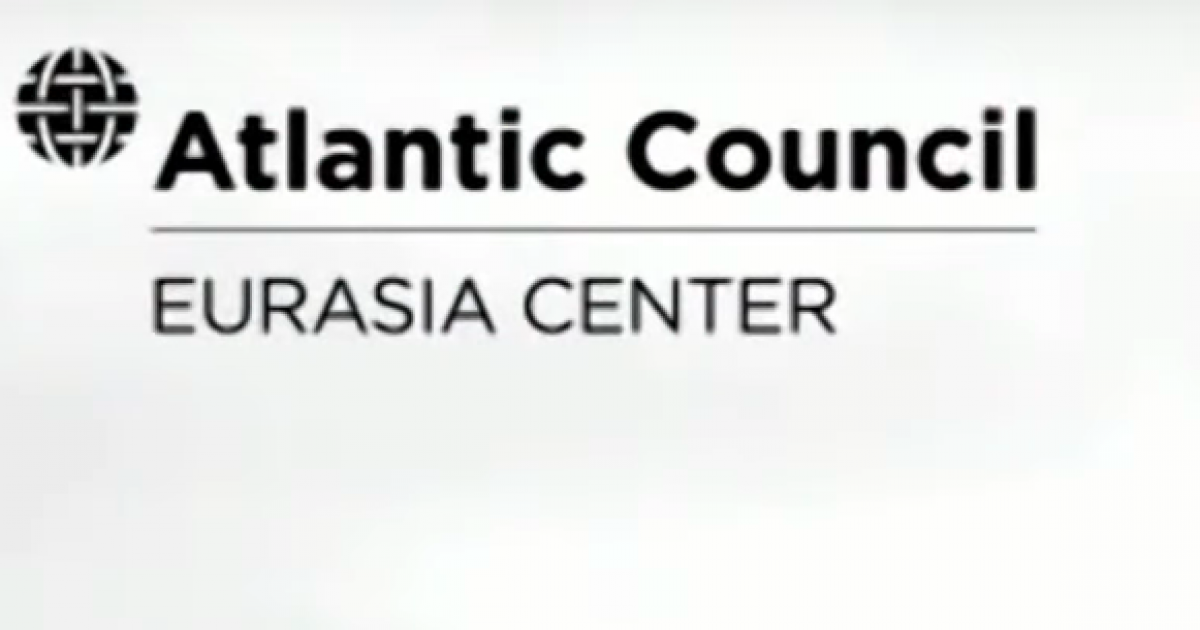
There is a soft civil war taking place inside the Atlantic Council.
The Atlantic Council is a leading foreign policy think tank that has traditionally pushed for neoliberal/neoconservative foreign policy and advocates for the U.S. to take a more muscular role abroad.
However, there appears to be dissent within their ranks on the issue of Russia. According to a Politico report, two senior experts at the Atlantic Council, Emma Ashford and Mathew Burrows, put out an article on March 5, 2021 making the case that the U.S. should not take strong stances on human rights when dealing with Russia. They controversially maintained that “democratization in Russia would not necessarily be good for US foreign policy interests.”
The publication of this article prompted 22 of the think tank’s staff and fellows to release a statement on March 9 that condemned Ashford and Burrows’ views, declaring that the article “misses the mark.”
Some of the key signatories to the statement were three former John E. Herbst (ambassador to Uzbekistan), Alexander “Sandy” Vershbow (ambassador to Russia and South Korea, and Daniel Fried (ambassador to Poland)
“Their article is premised on a false assumption that human rights and national interests are wholly separate and that US policy toward Russia was and remains driven by human rights concerns principally,” the statement declared. “In fact, previous administrations and the current one have sought to integrate our values and other national interests. We the undersigned disagree with its arguments and values and we disassociate ourselves from the report.”
A number of members from the foreign policy elite speculate that this article was the product of a $4.5 million donation that Charles Koch made to the Atlantic Council. Although Koch is controversial for his advocacy of mass migration, his foreign policy is sensible. He generally believes in a restrained American foreign policy abroad.
Following Koch’s decision to give money to the Atlantic Council, the newly donated funds would then be allocated towards the New American Engagement Initiative, which attempts to address foreign policy issues from a unique perspective.
Ashford previously worked at the Koch-funded Cato Institute, a libertarian think tank known for its restrained foreign policy views. In September 2020, Ashford started her new job at the Atlantic Council specifically working in the NAEI.
“The Koch industry operates as a Trojan horse operation trying to destroy good institutions and they have pretty much the same views as the Russians,” said an individual who signed the statement. The individual in question made the case that countless other think tanks have higher standards and refuse to take money from the likes of the Kochs.
Former Estonian President Toomas Hendrik Ilves, lividly tweeted about the Koch funding: “So the people who know anything about Russia disassociate themselves from the Koch-funded, sinecured isolationist shills who do not and who say the US should not care about human rights violations in Russia. #Followthemoney It’s not a pretty path.”
https://twitter.com/IlvesToomas/status/1369405277867552769
The fascinating part about this internal split is how the Atlantic Council has traditionally been hawkish towards Russia. In fact, its strong stances against Russia resulted in the Russian Prosecutor General’s office categorizing the foreign policy think tank as an “undesirable organization”, thereby limiting the Atlantic Council’s ability to operate in Russia and work with Russian entities.
Dissent among foreign policy elites is a good thing. The so-called “Blob” is filled with tons of groupthink when it comes to conducting foreign policy. It’s obsessed with bullying nations that don’t conform with Western liberal standards, regime change, and saber-rattling when the opportunity arises.
Let’s face it, continued saber-rattling or regime change efforts directed towards Russia will see it drift into China’s arms, which will make America’s foreign policy challenges more pronounced.
America has sufficient deterrence with its nuclear arsenal and word class military. In addition, there are multiple nations across the world that have entered First World status, which gives them enough wealth to build solid militaries to check great powers and would be hegemons alike.
America does not need to police the entire world and create new and even more emboldened enemies such as Russia.



